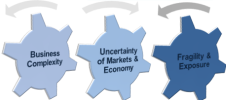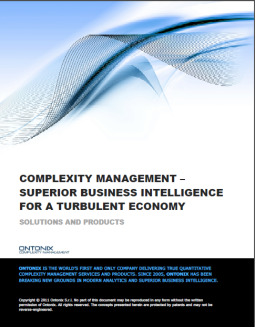Is Risk Management a Source of Risk
Monday, 23 September, 2013 Leave a comment
See on Scoop.it – Complexity & Resilience
If you have risk function, however, that fully understands the business model, the deployment of its operational strategy, the sector the business operates in and the macro-economic and socio-political environment in which it operates, then they will be able to provide risk information that is relevant to the business, and can be understood by the business.
‘Knowledge’ that fails to distinguish between practises that are based upon sound theory and those that rely upon flawed models and assumption-based modelling, do not lead to understanding but to feedback loops of unintended consequences…patterns and correlations of our own making!
Unidentified sources of risk and ill-informed (albeit well-intentioned) efforts to manage without UNDERSTANDING ‘causal relationships‘ has the opposite of the desired effect…
…unmanaged risk does not dissipate but is a source of systemic risk, mis-managed, it adds complexity is amplified through the business’ interdependencies and interactions, feeding-back as volatility and adding to uncertainty.
‘Conventional wisdom’ (or herd mentality) based upon assumptions of knowledge, can/does impair our ability to understand and address issues at source.
Before we had the tools to increase our knowledge we were ignorant but, to have the tools and not use them is dangerous and costly ineptitude!:
‘Corporate Latency’ is a significant source of, reducible, exposure in every domain and, unless it is better managed, we cannot build resilient systems or create ecosystems that can claim to be truly sustainable.
See on ontonix.blogspot.it
Related articles
- Ontonix S.r.l.: Complexity Profiling and Causality (fitforrandomness.wordpress.com)














